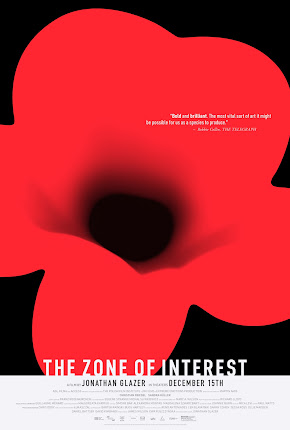The Zone of Interest (2023) - Something that could have been much more
The Zone of Interest (2023)
I've never felt so disappointed after leaving the theater, oh my. Everyone present with me after the viewing was disappointed, but very disappointed. How could this happen? How did it happen that perhaps my most anticipated film of the year, acclaimed by everyone, turned out to be nothing more than a mediocre "movie"?
Damn, the expectations were sky high, the basic idea was absurd and brilliant, so what doesn't work in this "The Zone Of Interest"?! Well, several things, but I'll start with the positive notes: the minimal and slow direction is good, not great, but good, the cinematography is excellent, the actors are good and the sets and sound are the most noteworthy aspects of the film.
Having said that, what led me to give such a low rating to the film that Alfonso Cuarón defines as the most important of the century (among other things, this speaks as if he hadn't himself directed one of the best films of the century, and yes I'm talking about Roma)? I would say 3 main aspects:
In first place I would put the conceit Jonathan Glazer.
Did the British director and screenwriter take the idea and completely throw it down the toilet in favor of a story that stops being a story halfway through the film and becomes, well, a docu-film-fiction? I don't even know, but in my humble opinion it doesn't work.
With this I do not want to criticize in any way the themes or the theme addressed in the film, on the contrary, I want to highlight how Glazer put his vision (which was not at all successful) before an important and universal theme such as the Holocaust, especially in a period as delicate as the current one where universality serves and is a primary need.
The thing that irritates me the most is that the first act of the film was also very well done and linear, and immediately gave rise to hope for an interesting and captivating plot twist in the subsequent acts, which doesn't happen, or rather it happens but at worst of the possible ways.
The second aspect is the rhythm.
In the first part, the film has a slow, gradual and exhausting pace, during which we could see the genius of the idea of not showing evil but making it perceived through sound, but everything fails when we enter the second act ( which to define as such is an insult to all decent film acts) and even more so in the third. Yes, because in this film there is no third act, and no matter what anyone says, for me it is like this: when you reach the end you feel something is missing, beyond a real story and this is precisely the third act.
The third huge problem is the ending. I think one of the weakest and most decontextualized endings (at least for the basis that the film establishes throughout the viewing) that I have recently seen in a film: it is just as if Glazer, having reached the end, not knowing how to conclude the film, threw in the middle 4 decontextualized shots to tell you "FRIEND, LET'S NOT FORGET". Shit, but do you think I'll ever forget about the Holocaust? Do you think I forget about Auschwitz, Birkenau and all the concentration camps that not only were there at the time but are also there now all over the world?! Obviously not, and Glazer was right to remind people, but the way he did it wasn't as impactful as I think he thought it would be.
I conclude by saying that it is a shame that this film is the one we saw, because it had the potential to REALLY become the masterpiece that everyone is talking about, but instead it turns out to be just an unsuccessful experiment, stuffed with negative shots to further make the alternative.
The sound is truly absurd and disturbing, but it's not enough.
Too bad...too bad...too bad.
If you want to feel the restlessness and silence of death during the Shoah, the best way is to go and personally see a concentration camp; as painful as it is, this is the best way to not forget.
I feel like finishing by thanking Spielberg, Polański, Pakula and Benigni for giving us universal and human experiences of one of the darkest pages in human history.
Peace.




.jpeg)


Comments
Post a Comment